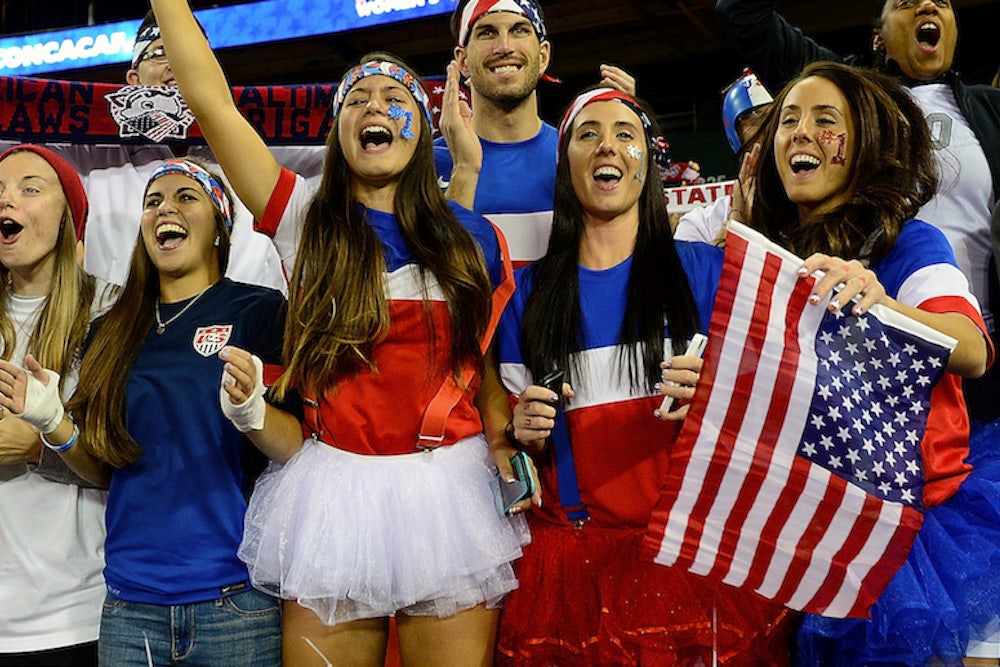When Manchester City played CSKA Moscow on Tuesday in the Champions League, Europe’s most prestigious soccer club competition, the 18,600-capacity stadium was mostly empty. It was the first of three games the Russian club has to play to a closed stadium as punishment for its fans’ racist behavior.
Forcing sanctioned clubs to play in closed stadiums has become standard protocol of late, but on Wednesday UEFA, European football’s governing body, announced that it is considering an alternate solution: allowing only children under the age of twelve and women into sanctioned matches.
This policy isn’t without precedent: Turkey adopted a women-and-children-only rule in 2011 for problematic club matches, a move that a UEFA spokesperson said “had a really positive effect on football” and was lauded by The Guardian at the time as being “good for football” by encouraging more female fandom. But if UEFA did adopt this policy, which would encourage organizations like FIFA to do the same, they would be doing the sport a disservice. Yes, racism is a problem. But sexism is not its solution.
Sports culture is overwhelmingly male, and fan violence is generally perpetrated by male fans. But the point here isn’t to deal with male aggression or machismo; this is about racism, and the violent behavior it often elicits. And racism isn’t male. By banning men and bringing in women, UEFA would be implying that women cannot be racist—that women could not possibly be capable of foul-mouthed, virulent racism, and must be brought in to save men from themselves.
Even when gender stereotyping depicts women in a positive light, it still removes agency and forces women to assume a specific identity. What's more, whenever there is a violent incident, UEFA cautions against generalizations, stressing that the regrettable behavior of a tiny minority has caused all fans (usually male) to be punished. But by adopting the women-and-children policy, UEFA would be doing the exact opposite to women—making a blanket assumption about how they behave. If UEFA doesn’t believe that men are the problem, then they shouldn’t advocate women as the solution.
Gender aside, the proposed policy would also defeat the purpose of sanctions: to punish the clubs and make them change their behavior. It's less about money—these clubs, valued in the hundreds of millions, can survive a few matches without ticket sales—and more about the embarrassment of playing to empty stadiums and losing the home-field advantage. It sends a very clear message. Allowing these teams to have an audience, however small and well-behaved, would complicate that message. The new policy would either lessen the force of the punishment, or, if we're to believe it's still a punishment, imply that women and children are not real fans.
UEFA has been aggressive in recent years about combatting racism in soccer, and it should be applauded for that. But this latest idea would be a step back. Racism and sexism already plague the sport. Don’t make one worse while trying to fix the other.
